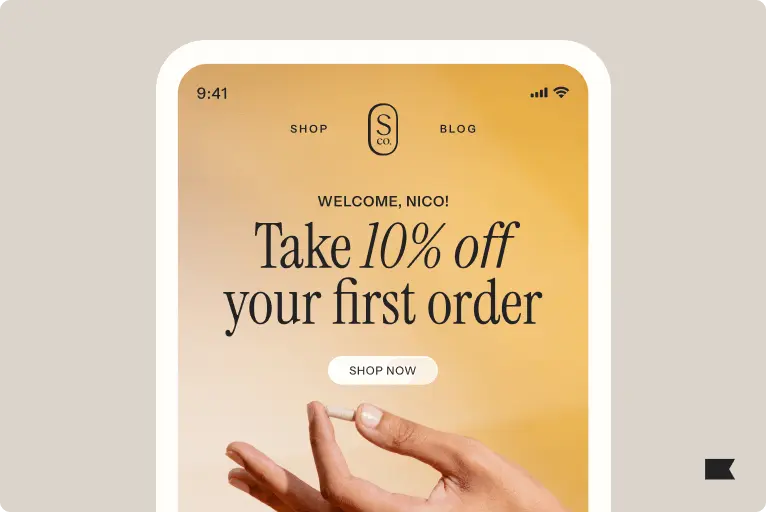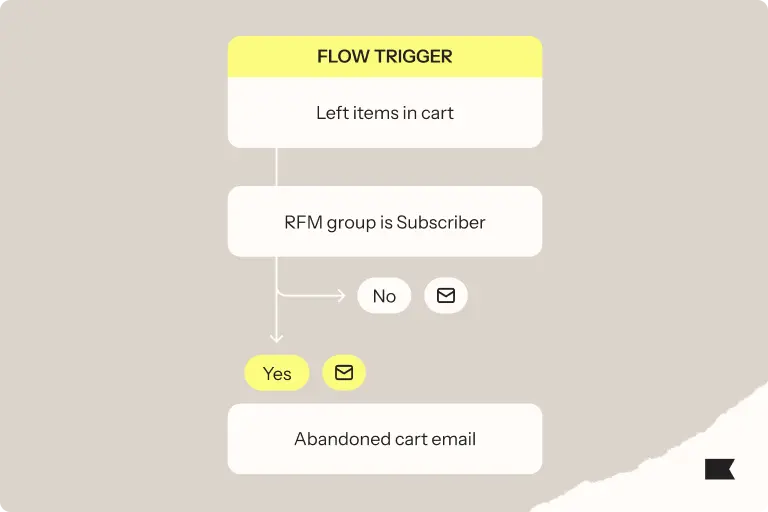Salesforce email marketing: 4 plug-ins for your Salesforce Commerce Cloud store
As one of the largest tech companies in the world, Salesforce offers plenty of its own proprietary plug-ins and add-ons for merchants who build their ecommerce store on Salesforce Commerce Cloud, including Salesforce Marketing Cloud and Salesforce Journey Builder.
But while a monolithic tech stack works for some mid-market and enterprise brands, others prefer a more composable, headless approach.
“You don’t typically invest in Salesforce with the intent of having other plug-ins in play, but I am always of the mindset not to rule it out as a possibility,” says Jen Brennan, director of digital marketing at full-service digital experience agency Northern Commerce.
Especially in an industry as ever-shifting as ecommerce, ruling out anything could be a mistake. “There are always new technologies and new partners coming out with new features,” Brennan points out. “You really need to continuously evaluate your tech stack and reassess whether there’s that fit, or whether you might need a new addition.”
If you’re like most marketers, you probably have to account for at least the hard costs associated with your financial investments in different technologies.
Are you confident you understand which platforms and services are giving you back what you’re putting in?
Your brand should be looking at your top 3 annual goals and your 3- to 5-year roadmap, and questioning whether your current technology is getting you there.
At least annually, “you need to be auditing whether you’re getting ROI from all those technologies,” Brennan says. “And if there’s a name on there you haven’t heard in a while, well, are you under-leveraging it? Could you potentially revisit it to either optimize and get more use and ROI out of it? Or does it not fit anymore?”
“Your brand should be looking at your top 3 annual goals and your 3- to 5-year roadmap, and questioning whether your current technology is getting you there,” agrees Colton Hathaway, VP of technology at Northern. “Is it helping you accomplish those goals? If not, what might you lean into instead?”
Here are 4 email marketing tools and plug-ins for Salesforce Commerce Cloud—half from Salesforce, half from third parties—you might want to consider the next time you reevaluate your tech stack:
- Marketing automation plug-ins for Salesforce Commerce Cloud
- Order management plug-ins for Salesforce Commerce Cloud
- Privacy plug-ins for Salesforce Commerce Cloud
- Delivery management plug-ins for Salesforce Commerce Cloud
1. Marketing automation plug-ins for Salesforce Commerce Cloud
When Brennan completes a marketing tech stack audit, she almost always finds that the client is under-leveraging email and SMS: “To some degree, for sure.”
That’s not to say they’re doing a bad job. “There are definitely clients that are doing it well, but there’s always an opportunity to be more strategic or even just invest in those channels in a more business-impactful way,” Brennan explains.
There’s always an opportunity to be more strategic or even just invest in those channels in a more business-impactful way.
With an email marketing platform like Klaviyo, which combines marketing automation capabilities with a powerful built-in customer data platform (CDP), your brand can unify data from across your tech stack and use it to deliver personalized email and SMS experiences at scale—the building blocks of high-quality, impactful customer relationships that deliver consistent ROI over the long term.
Hathaway cites “the ease of integration” between Klaviyo and Salesforce Commerce Cloud as a prime reason Salesforce Commerce Cloud merchants choose Klaviyo for marketing. With Klaviyo, “everything’s very API-driven, and Salesforce is very similar,” he points out.
With Klaviyo, everything’s very API-driven, and Salesforce is very similar.
It’s also data-driven. The one-click Klaviyo x Salesforce Commerce Cloud integration is only one piece of the email marketing solution’s sophisticated functionality. With 300+ built-in integrations to other top tech tools and an open API philosophy, Klaviyo enables brands to:
- Use built-in and customizable email templates to create email marketing campaigns, text messages, and on-site sign-up forms.
- Segment subscriber lists without limitations, using any combination of events, profile properties, location, predicted lifetime value, and more—over any time range.
- Trigger marketing automations like abandoned cart emails, transactional email messages, and post-purchase follow-ups based on dates, events, email list membership, or segment membership.
- Capture additional user actions or properties with Klaviyo’s easy-to-use, hassle-free APIs.
- Use email splits, filters, and A/B tests to determine the best email subject lines, CTAs, and more, then optimize key email marketing metrics, including open rates, click-through rates, and conversions.
- Create a cohesive, omnichannel customer experience.
Brennan adds her 3 favorite things about Klaviyo for Salesforce Commerce Cloud merchants:
- Time to return: “How quickly you can build in Klaviyo and get things set up in Klaviyo is very attractive,” says Brennan, who notes the typical Klaviyo migration takes Northern’s team about 30 days (but they can do it faster!).
- Digestible, actionable analytics: “The amount of analytics you have at your fingertips in Klaviyo is so robust,” Brennan says. “It’s not just that you’re going to be sending email and SMS. It’s also what you can do with that information, and understanding the way your different marketing channels are feeding into your larger ecommerce goals, and what all of that means for your business.”
- Accurate attribution: Especially compared to a more anonymized platform like Google Analytics, “Klaviyo is able to more reliably report on marketing actions and results, which makes it that much easier to decipher the overall value of your channels and your marketing strategy,” Brennan explains.
Klaviyo is able to more reliably report on marketing actions and results, which makes it that much easier to decipher the overall value of your channels and your marketing strategy.
Klaviyo also fully supports all Commerce Cloud architectures, including SiteGenesis and SFRA.
2. Order management plug-ins for Salesforce Commerce Cloud
Hathaway calls Salesforce’s proprietary order management capabilities “really critical.” Salesforce Commerce Cloud merchants can use Salesforce Order Management to:
- Sell and fulfill on any channel, providing agents a single view to easily manage and modify orders.
- Deliver faster, more efficient fulfillment, optimizing orders for cost, speed, and sustainability with real-time inventory.
- Simplify complex order routing and save costs using automation and artificial intelligence.
- Scale on a trusted, agile platform with easy-to-use tools and industry-leading technology.
What makes Salesforce Order Management so powerful, Hathaway says, is “the fact that it can integrate and consolidate order data from multiple channels, be it ecomm, point of sale in-store, enterprise resource planning, B2B channels—everything.”
It then consolidates everything into the Salesforce CRM—and, if integrated with a platform like Klaviyo, provides access to “not only your ecommerce intelligence, but also the broader picture of the entire customer journey to inform your next send,” Hathaway explains.
That’s where I see a unique opportunity to tie the order management aspect of Salesforce into something like Klaviyo for email execution.
One of Hathaway’s favorite Salesforce Order Management playbooks is Order Support, which “allows you to connect your commerce data model into the Salesforce CRM so you can effectively service those orders,” Hathaway explains. “That’s where I see a unique opportunity to tie the order management aspect of Salesforce into something like Klaviyo for email execution.”
3. Privacy plug-ins for Salesforce Commerce Cloud
Salesforce Privacy Center is “more of a data compliance piece within Salesforce,” Hathaway says, “but it manages all these different legal and customer data regulations”—including GDPR in the EU, Québec’s Law 25, the California Consumer Privacy Act, and more.
With Salesforce Privacy Center, Salesforce Commerce Cloud merchants can:
- Build a single source of truth for customer opt-in data.
- Comply with privacy requirements.
- Protect sensitive data.
- Provide data transparency.
Importantly, the technology “provides a mechanism where a customer can request their information from a brand, and then they can request that you delete or anonymize that data,” Hathaway says. “So the Privacy Center add-on is great in that it can basically control, automate, and inform different systems.”
I think that’s important as part of this ecosystem where brands need to be understanding compliance and regulations.
Here’s how it might work with Klaviyo, for example: “It would come from Salesforce as a trigger, but it would send that request to Klaviyo to anonymize or delete or request that data, the same way it would do to Commerce Cloud,” Hathaway explains. “I think that’s important as part of this ecosystem where brands need to be understanding compliance and regulations.”
4. Delivery management plug-ins for Salesforce Commerce Cloud
A variety of delivery management platforms plug into Salesforce, but one of Hathaway’s favorites is Bringg—the only delivery management platform natively built on Salesforce, according to the platform’s page on Salesforce AppExchange.
Bringg aims to streamline delivery and fulfillment operations for enterprise businesses by connecting and automating supply chain systems, delivery fleets, and customers.
Salesforce Commerce Cloud merchants can use Bringg to:
- Automate shipping and fulfillment, including same-day delivery.
- Send tracking emails to customers, based on real-time tracking information.
- Provide accurate delivery dates and costs.
- Integrate directly with 250+ carriers or their own vehicles.
- Provide consistent omnichannel shopping and delivery experiences to shoppers.
“They’re quite good,” Hathaway says. “Because they’re handling a lot of those last-mile logistics, they’re helping make sure you’re informing your customers in a consistent, branded way.”
Salesforce email marketing FAQs
Does salesforce email marketing integrate with social media?
Yes, Salesforce offers robust social media integration capabilities. It allows businesses to connect their Salesforce instance with various social media platforms to enhance customer engagement, monitor social interactions, and track social media metrics. By integrating with social media platforms, Salesforce enables businesses to leverage social media as a powerful tool for customer engagement, lead generation, and data-driven decision-making. This integration helps in creating a holistic view of customer interactions across various channels.
Does Salesforce’s email marketing solution have a content builder?
Yes, Salesforce’s email marketing software includes a Content Builder. Content Builder is a powerful tool that allows users to create, manage, and personalize email content blocks within the Salesforce Marketing Cloud platform. It provides a user-friendly interface for email design and editing, as well as for the management of various types of dynamic content assets like images, videos, and documents.
How does Salesforce email marketing handle data management?
Salesforce Email Marketing, which is part of the Salesforce Marketing Cloud, provides robust data management capabilities to ensure that marketers can effectively target, personalize, and analyze their email campaigns. Additional data can be appended to existing records through data extensions and enrichment services. This can include demographic information, firmographic data, or behavioral insights.



